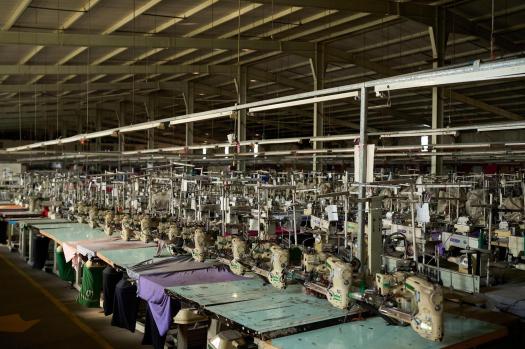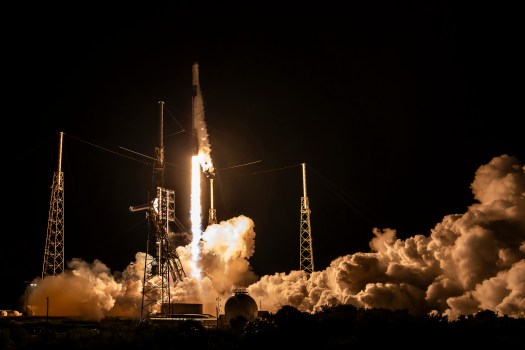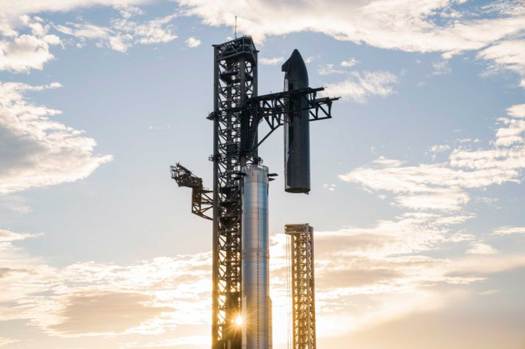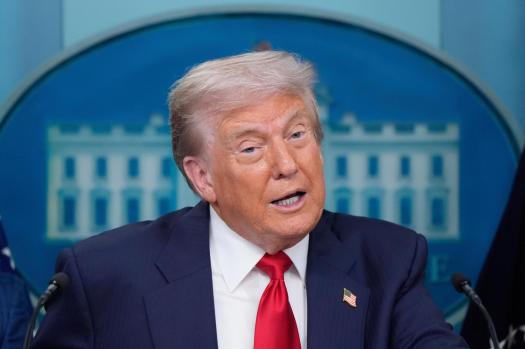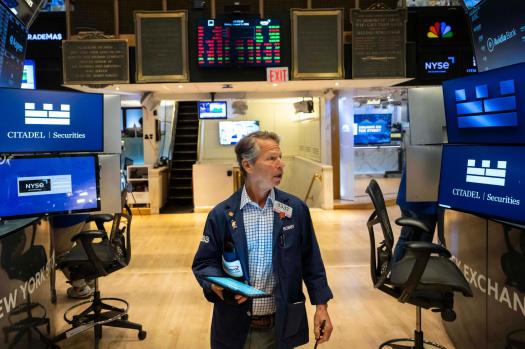Written by Renata Brito
Lesotho’s MASERU (AP) There is no longer the thunderous boom of hundreds of sewing machines. Dust covers spools of thread of every hue. It’s dark and empty in the warehouse.
Related Articles
-
Pope marks 50th anniversary of Cold War-era deal on security and human rights
-
Dozens of Palestinians killed by Israeli fire in Gaza, officials say, as hunger crisis grinds on
-
Tsunami warnings fading after one of the largest earthquakes ever recorded. Here s what to know
-
Some facts about the strongest earthquakes ever recorded
-
Birmingham gives an emotional farewell to Ozzy Osbourne as tearful family lead tributes
Due to tariffs imposed by the administration of U.S. President Donald Trump, the apparel maker Tzicc’s business in the small African nation of Lesotho has dried up. Work was consistent a few months ago. Sportswear has been produced and shipped by the 1,300 workers at the facility to American retailers such as JCPenney, Walmart, and Costco.
However, Lesotho was at the top of the list when Trump announced massive new tariffs on almost all U.S. trading partners in April. The rate was 50% greater than that of China, whose economy is 8,000 times larger. Both local officials and economic analysts expressed confusion.
Trump has since temporarily retreated. The United States has set new tariff rates for dozens of nations beginning Friday and imposed a baseline 10% tax during a months-long halt for trade negotiations. Trump will determine Lesotho’s rate at his discretion; according to aides, tariffs on goods from smaller African nations may reach 10%.
Letters outlining a new tariff have been sent to numerous countries. Lesotho authorities claim they have not been granted a pause, and they are among the nations where Trump claims officials simply do not have time for one-on-one talks, even though the pause is scheduled to end on Friday. Leaders are still waiting, as are the 12,000 workers who work in clothing firms that sell to the US market.
The economy of Lesotho, where textile production employs over 30,000 people in 2024 and is the country’s largest private sector, has already been impacted.
The threat and apparent exclusion from Lesotho were sufficient for Tzicc and its clients. The management made the hasty decision to fulfill current orders prior to the resumption of tariffs. However, new orders from American customers ceased. Almost all of the manufacturing workers were sent home, possibly permanently, since they had no more work to do.
Rahila Omar, the plant compliance manager, walked past rows of covered and silent machines and pointed out the irony of the strategy, saying, “Well, unfortunately, we finished.” We don’t have any work right now because of this.
Only a few workers remain in the strangely silent factory, including Omar. Some are still in the accounting division, while others move any remaining inventory to another warehouse.
Workers and officials worry that this could be a portent of things to come for other companies in Lesotho, where the majority of textile workers support their families alone and poverty is pervasive among the country’s 2 million inhabitants.
In a speech denouncing U.S. foreign aid in March, one month before imposing the 50% tariff on Lesotho, Trump referred to the country as a place no one had ever heard of and struggled to pronounce its name.
As stated by its own trade minister, Mokhethi Shelile, Lesotho’s economy is indeed extremely small.
However, it has a long-standing ties with Washington. Following Lesotho’s 1966 declaration of independence from the United Kingdom, the United States became the first nation to establish an embassy in the capital, Maseru. Through the now-defunct USAID office and the PEPFAR program, the United States provided training to the military and supplied hundreds of millions of dollars to Lesotho to combat the HIV/AIDS epidemic.
Lesotho’s primary export was textiles, with almost 75% of its output going to the United States. Lesotho gained notoriety as the denim capital of Africa. As tags still indicate, jeans bought by an American from a U.S. brand like Levi’s or Wrangler may have been Made in Lesotho.
Lesotho and other African countries are now able to export goods to the United States duty-free after the United States signed the African Growth and Opportunity Act in 2000.
Shelile claimed he was awakened in the middle of the night by texts from advisers informing him of the 50% U.S. tariffs as he was negotiating the September renewal of AGOA.
“No, this isn’t possible,” Shelile recalls thinking. How could we have earned this?
The Trump administration claims that Lesotho imposes a 99% tariff on commodities from the United States. The local authority stated that it has no idea how the United States arrived at that conclusion.
Theoretically, the trade gap served as the basis for the tariff decision: Lesotho’s imports from the United States were only $2.8 million last year, while its exports to the United States, which were primarily apparel and diamonds, totaled almost $240 million. In actuality, however, the math is more intricate than that. In actuality, Lesotho really cannot afford to import additional goods from the United States. The poverty line affects over half of the population.
“These kinds of differences between two economies can lead to a natural trade deficit, which is what the trade deficit between Lesotho and the U.S. is,” Shelile explained. It cannot be violated, and raising tariffs is most definitely not one way to do so.
According to national figures, the overall unemployment rate in Lesotho was around 30% last year. It was close to 50% for people under 35.
The administration declared a state of calamity this month because the possibility of tariffs has made the country’s unemployment problems worse.
We’ve already suffered a lot of defeats, regardless of how we look at it, Shelile stated. People have lost a significant amount of money. And it will take time to recover and return to our previous state.
Women with children to support and school fees to pay make up the majority of the 12,000 workers employed by Lesotho’s 11 firms that export to the United States.
According to Shelile, 9,000 of those jobs are directly at risk, while an additional 40,000 will be negatively impacted indirectly by the tariffs imposed by the United States.
“We’re talking to real estate people who are renting out rooms,” he said. Whether it’s a taxi driver delivering passengers to work in the morning or a long-distance haulage to the port, we’re talking about people in transportation. They will be impacted.
Mapontso Mathunya, who is currently unemployed, used to work on the floor of Tzicc’s cutting room. Her spouse is also without a stable employment. Mathunya was the family’s primary provider for their two small children. She now makes an effort to sell smokes and food on the street, but it is a daily battle for her to earn even a few cents.
“We have had a significant financial burden,” she remarked. It’s not good.
According to compliance manager Omar, what occurs on Friday will determine the Tzicc factory’s future.
The factory, which has been in operation since mid-1999, is owned by a Taiwanese national. In a peak month, it made up to 1.5 million pieces of clothing for JCPenney.
Key U.S. customers for Tzicc JCPenney, Walmart and Costco did not reply to AP to comment.
Pivoting to the neighboring South African market, one of the solutions proposed by the trade minister and industry consultants, wouldn t be enough to even cover the employees payroll, Omar said.
And even if American buyers return, it s unlikely the factory could rehire all its 1,300 workers, she added.
Today, just a few blocks away, former employees try their luck looking for work at other factories that are still operating. The majority are rejected.
Life is difficult, former worker Mathunya said. There is nothing, nothing at all. People don t have money.
Pascalinah Kabi in Maseru, Josh Boak in Washington and Anne D Innocenzio in New York contributed.
The Associated Press receives financial support for global health and development coverage in Africa from the Gates Foundation. All content is entirely the AP’s responsibility. Find AP sstandardsfor working with philanthropies, a list of supporters and funded coverage areas atAP.org.
